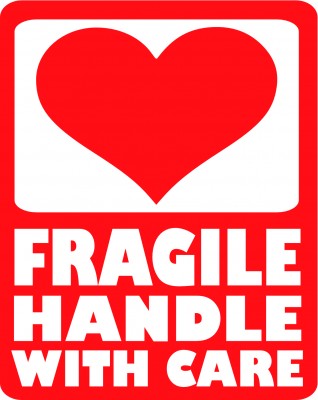 Losing sleep, poor eating habits, irritability or short tempered – these symptoms may start small and snowball quickly into what is referred to as caregiver burnout. Professionals and families need to know what to look for and how to help caregivers. It’s a serious matter and growing, as more families are caring for their loved ones at home with little or no help.
Losing sleep, poor eating habits, irritability or short tempered – these symptoms may start small and snowball quickly into what is referred to as caregiver burnout. Professionals and families need to know what to look for and how to help caregivers. It’s a serious matter and growing, as more families are caring for their loved ones at home with little or no help.
Caregiver burnout is a state of physical, emotional, and mental exhaustion that may be accompanied by a change in attitude – from positive and caring to negative and unconcerned. Burnout can occur when caregivers don’t get the help they need, or if they try to do more than they are able to do – either physically, emotionally or financially.
Guilt is a huge problem with caregivers, especially those who are caring for someone with dementia or other chronic illness. As I reflect on my many years caring for my parents, I think guilt was the over riding struggle. Like most caregivers, I felt guilty when I was not spending time with my parents, and when I was caring for them I felt guilty that I wasn’t with my children and husband. It was a constant balancing act – and more than often I felt that I was on the low end of the teeter totter.
Symptoms of caregiver burnout are similar to symptoms of stress and depression: They may include:
- Withdrawal from friends, family and social activities
- Irritability
- Altered eating patterns
- Increased sugar consumption or use of alcohol or drugs
- Frequent headaches or sudden onset of back pain
- Impatience
- Loss of compassion
- Overreacting to criticism or commonplace accidents
- Resenting the care recipient and/or situation
- Wishing to “have the whole thing over with”
- Feeling trapped
- High levels of fear and anxiety
Playing the “if only games; saying over and over “if only this would happen; or “if only this hadn’t happened”
It is critically important that senior care professionals understand what to look for when they are talking with families. Symptoms may start slowly but can quickly snowball into a serious situation. Protecting our older adults from neglect and abuse means a watchful eye and being able to guide families with support and help the need.
A few sources for help and assistance are:
- Social workers
- Faith based counselors
- Family Caregiver Support Groups
- Area Agencies on Aging (hotline 800-963-5337) (www.n4A.org)
- Alzheimer’s Association 24/7 helpline (800-272-3900) (www.alz.org)
- National Elder Abuse hotline (800-677-1116)
(
- )
Pam Brandon is President/Founder of AGE-u-cate® Training Institute and creator Dementia Live™️ experience, helping caregivers worldwide to better understand dementia and aging, transforming professional and family caregiver’s ability to better care for our older adults.
 Looking back to my years a family caregiver, I wonder if I’d worn a badge that read “Fragile – Handle with Care”, it might have been easier for others to understand me. Why I often had puffy eyes from crying, or scatter brained from sleep deprivation. I can remember a certain period of time when I was issued a number of traffic violations…speeding through a school zone of all things (my children were both in elementary school at the time). Thank goodness this was before cell phones. There were times when I simply wasn’t myself. I was emotional, physically and spiritually worn out and burned out. Thinking clearly was often a challenge because I was overwhelmed.
Looking back to my years a family caregiver, I wonder if I’d worn a badge that read “Fragile – Handle with Care”, it might have been easier for others to understand me. Why I often had puffy eyes from crying, or scatter brained from sleep deprivation. I can remember a certain period of time when I was issued a number of traffic violations…speeding through a school zone of all things (my children were both in elementary school at the time). Thank goodness this was before cell phones. There were times when I simply wasn’t myself. I was emotional, physically and spiritually worn out and burned out. Thinking clearly was often a challenge because I was overwhelmed.